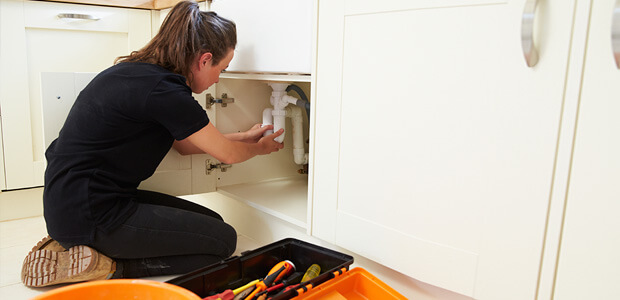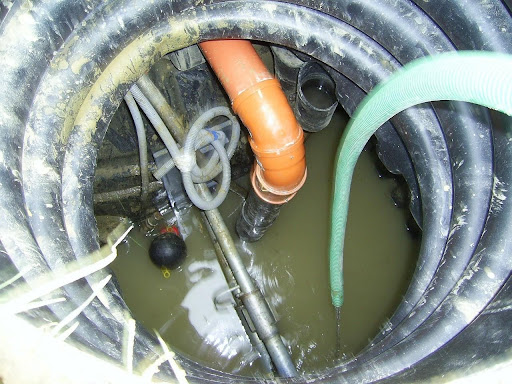What to Deal with a Blocked Drain Before Calling Plumbing Experts
What to Deal with a Blocked Drain Before Calling Plumbing Experts
Blog Article
They are making a number of great points related to Tips for Dealing with Clogged Drains and Sewer Lines as a whole in this great article down the page.

Intro
Taking care of a blocked drain can be a discouraging experience, interfering with daily activities and possibly causing damage to your property. Nevertheless, before reaching out to pipes professionals, there are actions you can require to resolve the problem on your own. In this overview, we'll discover DIY services and preventive measures to tackle an obstructed drainpipe effectively.
Recognizing the Problem
The first step in resolving a blocked drain is acknowledging the indications. Slow-moving water drainage, gurgling noises, foul odors originating from drains pipes, or water backing up are common signs of a blocked drain. Identifying these indicators early can assist prevent further complications.
Common Causes of Obstructed Drains
Understanding the elements that add to drain clogs is essential for reliable resolution. Common wrongdoers include hair, soap residue, oil, food debris, and foreign items like hygienic items or paper towels. Tree origins attacking below ground pipelines can likewise trigger considerable obstructions.
DIY Solutions
For minor clogs, a number of do it yourself remedies can be reliable. Putting boiling water down the drainpipe can aid liquify grease and particles. Baking soda and vinegar or a mix of salt and baking soda can act as all-natural cleansers. Making use of a bettor or pipes serpent to dislodge obstructions is another option.
Tools and Equipment
Having the right devices accessible can make do it yourself drain cleaning extra efficient. A bettor is a versatile device for clearing obstructions in sinks, bathrooms, and showers. A pipes snake or auger can get to much deeper clogs, while drain cleansing chemicals can be made use of cautiously for stubborn obstructions.
Preventive Measures
To avoid future blockages, taking on preventive measures is vital. Mount drainpipe guards or filters to catch hair and debris before they get in the pipes. Consistently flush drains with warm water to liquify oil accumulation, and stay clear of getting rid of grease or solid waste away.
When to Call a Specialist
While do it yourself services can resolve small obstructions, specific indications suggest the need for specialist support. Relentless blockages, foul odors in spite of cleaning initiatives, or multiple drains supporting all at once are warnings that require professional intervention.
Selecting the Right Pipes Solution
When selecting a pipes solution, take into consideration variables such as experience, licensing, and consumer evaluations. Pick a reputable plumber with a track record of quality craftsmanship and transparent rates practices.
Cost Factors to consider
The price of professional drainpipe cleaning company can differ depending upon the extent of the clog and the plumbing professional's rates. Demand quotes from numerous providers and inquire about any kind of surcharges to ensure transparency and avoid shocks.
Security Precautions
When attempting do it yourself drainpipe cleaning, focus on safety and security. Use safety gloves and glasses to prevent contact with harmful chemicals or germs. Never ever mix different drain cleansing products, as this can generate hazardous fumes.
Instance Studies
Real-life instances highlight the performance of DIY options and the significance of prompt expert intervention in solving drain blockages.
Conclusion
By following the tips outlined in this overview, you can successfully tackle obstructed drains pipes and avoid future plumbing concerns. Whether choosing DIY remedies or seeking professional support, timely action is crucial to maintaining a healthy pipes system and protecting the honesty of your home.
WHAT I LEARNED FROM TRYING TO DEAL WITH A CLOGGED DRAIN
We have had our share of seepages and other annoying things that are part of living, especially in an apartment complex. And if there’s one thing that’s terrifying for a homeowner—or even someone in a rented home—it is a clogged drain, indoors or outdoors.
We enjoy our living space, but it’s simply a fact of life that dead skin, soap and a host of other items go down the drain; eventually, the residue builds up and prevents anything from moving. Ugh.
Not Calling A Professional
Of course, it might seem simple to just whip the pipe off under the sink and see if you can unblock it. Unfortunately, what if the blockage isn’t there, or you don’t reconnect it properly? Worse, you might break a piece and have no drainage system. Can you imagine that scene? Yuck!
Not Watching Your Waste
This will sound d’uh, but the best tip I can give you for drain cleaning is to avoid clogging the drain in the first place! You can do this by monitoring what goes down the drain and catching the items which are most likely to give you a problem. Invariably hair, vegetable peels, and large wads of toilet paper are the most obvious culprits. Add a filter—these are available in hardware stores and can be removed and cleaned easily.
Poking The Drain
The first urge with a clogged drain is to poke at it with a stick or anything that resembles a stick. Sadly, this does not result in magically solving the issue. The mental image is, naturally, one of the stick just pushing through the offending item and all is well again. Reality is quite different and unpleasant and likely to lead to further problems.
The thing is, every drain has a series of bends that are not visible to us. Drains are built this way to prevent gases from entering the house. What happens when you poke a stick into the drain? Of course, it can’t bend around the corner. The more adventurous people will use force and end up wedging the stick or causing it to break off in the pipe—creating an even bigger issue. Worst thing? The stick will shift the block further down the pipe, creating the space for more to collect. Go ahead! Roll your eyes!
Using The Wrong Plunger
You know what they say: the right tool for the right job! Did you know there are different types of plungers besides the basic one we keep at home for an emergency? Yes, there are. For example, the toilet plunger has a bell-shaped bottom while the sink plunger is flat. This is an important difference and using the wrong plunger will be useless. There’s also a knack in using plungers—they must be placed in such a way that they create an airtight seal and then, moved slowly up and down—not as fast as we imagine.
https://vidyasury.com/2018/01/learned-trying-deal-clogged-drain.html

As a fervent person who reads on , I think sharing that post was worth the trouble. Are you aware of somebody who is in the market for the subject? Do not hesitate to promote it. We treasure reading our article about Some easy tips to fix blocked drains.
Schedule Service Now Report this page